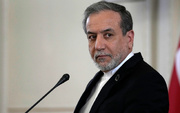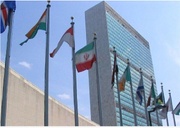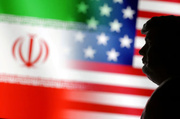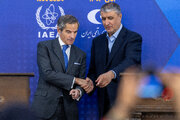British Prime Minister Boris Johnson met with US President Joe Biden at the White House on September 21. The talks were nothing short of a diplomatic coup for London.
They came right after the announcement of the so-called AUKUS, a three-way partnership between the United States, the United Kingdom and Australia. Under its terms, the government in Canberra agreed to procure American nuclear-propelled submarines with the aim of modernizing the Australian navy.
Following the partnership, Australia decided to cancel a French submarine contract and replace it with a US one. After Canberra's decision, France’s historic decision to recall its ambassadors to the US and Australia is far more than a diplomatic spat, analysts have warned.
The issue was discussed in an interview with Pavel Timofeev. Following is the full text of the interview:
How do you see the effect of the recent submarine deal between Australia and the US on transatlantic relations and also NATO?
First of all, we should remember Australia is an old US ally in the Pacific. The examples of their military cooperation are the Five Eyes intelligence alliance, ANZUS defense union (since 1951) and Quadrilateral Security Dialogue (QUOD), established in 2007. Thus, the new format of their interaction (AUKUS) as well as the new contract for submarines construction - targeting to contain Chinese ambitions in the Pacific - continue this logic. The core question is the reaction of European states participating in NATO. Highly unlikely they would be against the US-Australia cooperation at the cost of their own interests. For example, France declared they will take into account the US-Australian deal in negotiations on the new NATO conception for 2022. It’s hard to say what it means precisely but it’s possible that the EU will do its best to persuade the US to respect EU interests in the Indian-Pacific region.
Can such trust-killing acts motivate Europe to be more serious in gaining strategic autonomy and formation of a European army?
Indeed, this step would be very logical in the contexts of a range of cases when the US really ignored EU interests in several crises – Trump’s decision to leave Syria abandoning the Kurds without coordination with Europeans in 2019, Biden’s choice to leave abruptly Afghanistan in 2021, and now – to make Australia break the agreement with France on submarines construction. France - as a country traditionally pretending to be the military leader of Europe - promotes several formats of EU military cooperation – like PESCO (Permanent structured cooperation) targeting to develop European military and technological base (since 2017) or European Intervention Initiative (EI2) (since 2018) – designed for shaping common European military mindset. At the same time not all EU countries desire to support France in increasing EU military autonomy since they feel secure in the NATO format – I mean Poland and other Eastern-European states.
Many believe the deal will hurt the non-proliferation treaty. What do you think of this?
This point is extremely urgent. According to the deal, Australia will have 8 nuclear submarines – of British (Astute) or US (Virginia) type. Presumably, they will have nuclear reactors but not nuclear weapons. On paper, the deal doesn’t break the NPT (Article 3[1]) since non-nuclear-weapon States shall conclude agreements with the International Atomic Energy Agency to cooperate in the field of peaceful nuclear activities. On the other hand, this option gives Australia the possibility to drive a coach and horses through NPT and to start their own nuclear program. Several states like China and Indonesia already expressed their concerns about it.
How do you assess the effect of such moves on the region’s security and stability?
No doubt the deal and its implementation will contribute to the tensions in the Indian-Pacific region. This step follows the logic of the US-China political and military competition. The ball is on the Chinese court– for example, to lay down new navy ships. So, the new round of naval military races should take place. This will raise the chances for military incidents in the Indian or Pacific Ocean. The situation is worrying.
France is going to send back its ambassador to Washington, does this mean mending the differences?
After the French ambassador, Mr. Philippe Etienne had been withdrawn from Washington on the 17th of September, both presidents had a talk on the 22nd of September. Probably, during a sharp conversation, Emmanuel Macron demanded some political compensation after the French-Australian agreement was destroyed. After the talk, France declared President Joe Biden first of all confirmed the importance of French and EU presence in the Indian-Pacific region – this point is highly important for France tempting to increase its involvment in the region. Secondly, Biden promised to support French operations in Northern Africa. Thirdly, the US confirmed the importance of European defense for transatlantic security and NATO. Since France has no intention to break the transatlantic ties, I guess these declarations of Biden could partially satisfy Paris. Anyway, the story is bitter for France and the French will make effort to compensate it by launching future political initiatives and negotiating new contracts for the shipbuilding in the Indian-Pacific region.
Pavel Timofeev is Cand. of Science (Politics), Head of Sector for regional issues and conflicts in the Department for European political studies, Primakov National Research Institute of World Economy and International Relations (IMEMO) of Russian Academy of Sciences
Interview by Payman Yazdani


























Your Comment